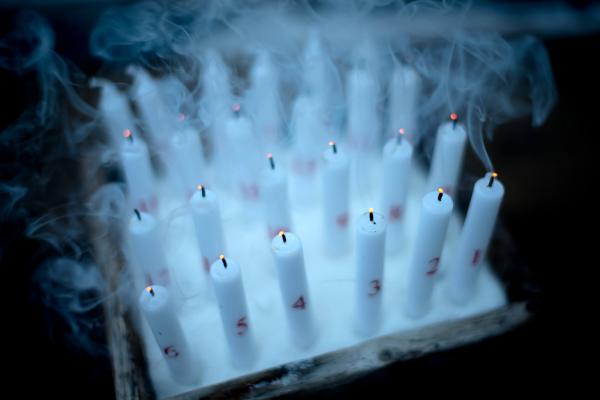My inability to change frustrates me. Recently, I’ve tried to avoid looking at Twitter or news feeds immediately upon waking. I used to tell myself that there was some good reason for doing so. Maybe I’d awaken to read which new national tragedy had befallen us while I slept; maybe the world is on fire and I need to be warned; maybe aliens are at the door and I should get dressed.
But more often, I see what I’ve always seen, which is what you’ve always seen: maddening politics, inane entertainment news, and some sports talk. The sports talk is fine. Last week, my eyes adjusted in the middle of reading a New York Times article detailing the North Carolina legislature’s newest unsettling actions. Having lost the governorship to a Democrat after a protracted post-election battle, they decided it prudent to strip the governor’s office of several key powers, including the ability to oversee state colleges and their trustee appointments.
If irony wasn’t dead, I’d say how ironic it was that in the midst of this season of Advent, in which we look to the nebulous future, a time-not-yet shaped by our ability to be patient and hopeful and tense and a bit sorrowful about what we cannot see but hope we shall soon see, our societal life is filled with those for whom there is no future.
Immediacy is king in politics. Moves like the one in North Carolina mirror so many other political actions and conversations that they begin to run together. Surely our memory is not so short as to have forgotten the debate over the “nuclear option,” in which Senate Democrats were faced with option to neuter the filibuster so as to fast track certain decisions with a simple majority. A primary element of that argument was that such an action might be appealing now, but could (and most certainly would) be used by the GOP when it arose to power once more. We should, said some, think of ourselves as the future minority party and consider what powers we’d want in that situation. Such caution only kept Senate Democrats from amending some filibuster rules, not all (though the changes that did pass will almost certainly come back to haunt them now).
Still, that kind of cautious thinking requires an acknowledgment of the future, which we collectively appear to have set on fire.
While conservatives are usually the ones making headlines for this kind of news, liberals are far from blameless, lest you think shortsightedness prefers red or blue. Resting assured that you have someone's support because you've historically had it — even though you've done little to nothing to see that support as an agreement from a human who has real human struggles and needs real human things from you — is as warped as anything I can think of. Couple that inflated ego with a decade-long unwillingness to stop the erosion of your influence and effectiveness on a local level despite believing in your moral superiority, and you've got a medically diagnosable lack of imagination.
But imagination requires an acknowledgment of the future, which we threw out the window after we set it on fire.
Flaming acknowledgments aside, our current political reality couldn’t be much more opposed to our religious season if it tried. If Christians are to be people of hope, we must be those who consider a future, for hope is predicated on the to-be-but-not-yet. That’s future talk. Advent is a time of hope set against sorrow, a time when we feel both and therefore seek resolution and reconciliation in the coming of Christ. Christ is born into our brokenness; that’s what Emmanuel, “God with us,” is all about. Not “God watching over us,” or “God up ahead of us,” but with us in all our present maladies.
One of those maladies is clearly our political climate, which isn’t some separate realm from our daily life. Politics is a complicated way to frame the simple idea that people live together and have to figure that out. Throwing out the notion of a future, then, becomes a disastrous way to handle our togetherness. We can look to one example: For those of us passionate about our planet and the health of its natural environment, this inability to couple current tension with the possibility of future resolution (good or bad) has been our long-running source of high blood pressure. “How can you not look toward the not-yet and see the potential? The flourishing or the reckoning?” we cry.
This is the mode in which all our politicking now operates. Folks who feel no good future awaits them begin to see the lack of potential as no future at all; their decisions then become those defined by no possibility. And if there’s no possibility, why not burn it all down and see what happens? Why not operate as if today’s victory is ultimate?
It’s hard to be an Advent person right now, with the world seemingly antagonistic to the long view. But our faith is of the not-yet, of the to-be, of the possible but not inevitable — which makes it all the more important to put our hands to the plow right now. Waiting is not stagnant, after all. Waiting is the sprinter hiked on the starting blocks. True patience is a tense state, one fraught with preparation and more activity than can be seen. Waiting with an eye on the almost-but-not-quite is combative and upending. Let us be ready. Let us be against those with no future in mind. Let us be Advent people.
This article originally appeared on Disembodied Beard.
Got something to say about what you're reading? We value your feedback!

